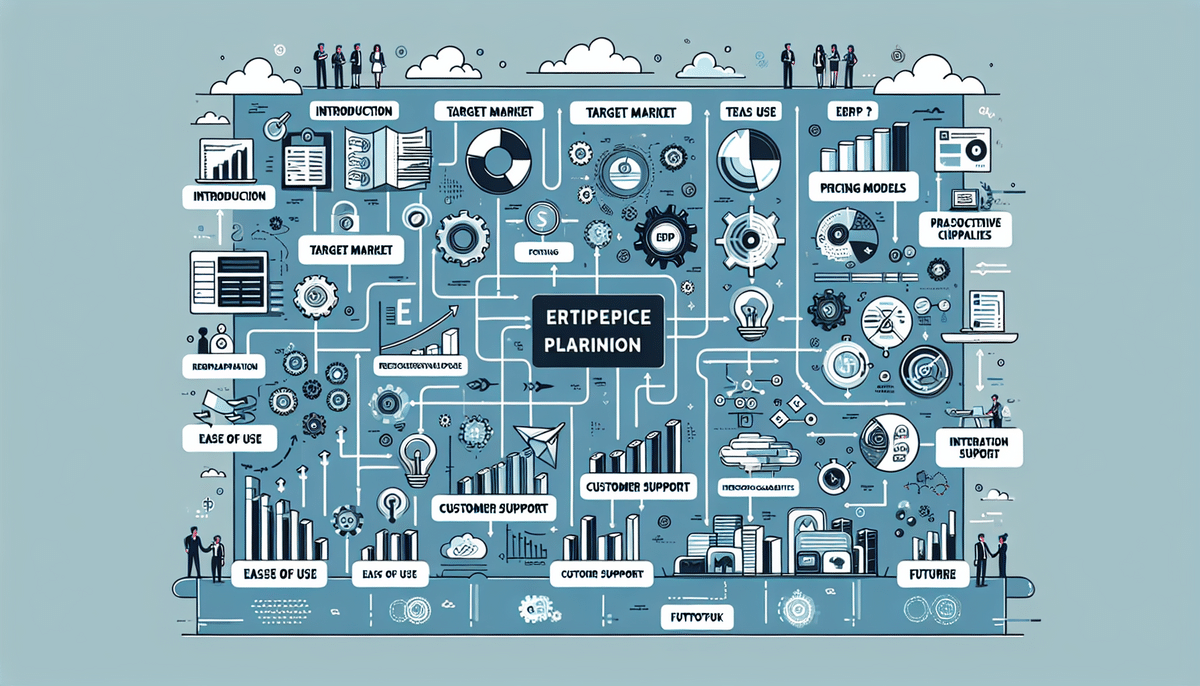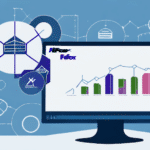NetSuite ERP vs Epicor ERP: A Comprehensive Comparison
Introduction
Enterprise Resource Planning (ERP) software is essential for businesses aiming to streamline operations, enhance productivity, and drive profitability. Among the myriad of ERP solutions available, NetSuite ERP and Epicor ERP stand out as prominent choices. This comparison delves into their features, functionalities, pricing, ease of use, customization options, integration capabilities, customer support, and pros and cons. Additionally, we examine real-world case studies and evaluate their future prospects to help businesses make an informed decision.
Target Markets and Business Sizes
NetSuite ERP is primarily designed for small to medium-sized businesses (SMBs). Its cloud-based architecture offers scalability, making it suitable for companies looking to grow without the burden of extensive IT infrastructure. On the other hand, Epicor ERP caters to mid-sized to large enterprises, particularly those in manufacturing, distribution, and retail sectors. Its robust and customizable nature makes it ideal for organizations with complex and specialized operational needs.
Pricing Models
Pricing is a crucial factor when selecting an ERP system:
- NetSuite ERP: Operates on a subscription-based model with pricing tiers starting at approximately $999 per month. This scalable pricing allows businesses to select modules that best fit their requirements.
- Epicor ERP: Typically follows a licensing model with upfront costs for software licenses. Maintenance and support are additional expenses, which can make the total cost of ownership higher compared to NetSuite.
According to a 2023 Gartner report, subscription-based ERPs like NetSuite offer greater flexibility and lower initial investments, making them attractive to growing businesses.
Core Features and Functionalities
Both NetSuite and Epicor offer comprehensive ERP solutions, but they differ in their core strengths:
NetSuite ERP
- Financial Management
- Supply Chain Management
- Customer Relationship Management (CRM)
- Human Resources (HR) Management
- E-commerce Integration
NetSuite excels in financial management and e-commerce capabilities, providing real-time visibility into financial performance and seamless integration with online sales platforms.
Epicor ERP
- Manufacturing and Distribution
- Supply Chain Management
- Business Process Management (BPM)
- Advanced Reporting and Analytics
- Customer Relationship Management (CRM)
Epicor is renowned for its strong focus on manufacturing and distribution, offering advanced BPM and analytics tools that support complex operational workflows.
Ease of Use
User experience plays a significant role in ERP adoption:
- NetSuite ERP: Features an intuitive and user-friendly interface that minimizes the learning curve. Its cloud-based nature allows easy access from any location, facilitating remote work and collaboration.
- Epicor ERP: While highly customizable, it may require more extensive training for users to fully leverage its capabilities. Its flexibility is advantageous for organizations with specific operational needs but can be complex for new users.
A study by Forrester highlights that user-friendly interfaces significantly enhance ERP adoption rates and overall user satisfaction.
Integration and Customization
Seamless integration with existing systems and the ability to customize ERP solutions are vital for operational efficiency:
- NetSuite ERP: Offers robust integration capabilities with various third-party applications through its SuiteCloud Development Platform. Businesses can leverage APIs and pre-built connectors for streamlined operations.
- Epicor ERP: Provides extensive customization options through its Epicor Integration Cloud (EIC), allowing businesses to tailor the software to their unique workflows and processes.
Both platforms support integration with popular CRM, HR, and project management tools, ensuring cohesive business operations across departments.
Customer Support and Training
Effective support and training resources are essential for maximizing ERP benefits:
- NetSuite ERP: Delivers 24/7 customer support, comprehensive online training materials, and an active user community. These resources facilitate quick issue resolution and continuous learning.
- Epicor ERP: Also offers 24/7 support and a range of training options, though its user community is comparatively smaller. Nevertheless, Epicor provides valuable resources for troubleshooting and system optimization.
Access to reliable support services can significantly impact ERP implementation success and long-term user satisfaction.
Case Studies
Examining real-world implementations provides insight into how each ERP system performs across different industries:
- NetSuite ERP: House of Marley utilizes NetSuite to manage its financial operations and streamline its supply chain, enhancing overall business efficiency.
- Epicor ERP: Dussmann Gulf LLC leverages Epicor for its facilities management services, benefiting from advanced BPM and analytics to optimize service delivery.
Pros and Cons
Understanding the strengths and limitations of each ERP solution aids in making a strategic decision:
Pros of NetSuite ERP:
- Highly customizable user interface
- Comprehensive out-of-the-box features and modules
- Active and extensive user community
- Scalable cloud-based solution
Cons of NetSuite ERP:
- Higher pricing tiers for larger businesses
- Less specialized in manufacturing and supply chain management
Pros of Epicor ERP:
- Modular approach with selective feature implementation
- Powerful customization and flexibility
- Advanced reporting and analytics capabilities
Cons of Epicor ERP:
- Requires more intensive customization and training
- Higher upfront licensing costs
- Potential complexity during implementation
Future Outlook
The ERP market continues to evolve with advancements in cloud computing, artificial intelligence, and machine learning:
- NetSuite ERP: Positioned for growth by expanding its cloud capabilities and integrating AI-driven analytics to provide deeper business insights.
- Epicor ERP: Transitioning towards a fully cloud-based model, enhancing its e-commerce functionalities, and improving user interfaces to increase agility and user adoption.
Both platforms are investing in innovation to stay competitive in a dynamic enterprise software landscape.
Conclusion: Which ERP Solution is Right for Your Business?
Choosing between NetSuite ERP and Epicor ERP depends on your organization's specific needs:
- NetSuite ERP: Best suited for small to medium-sized businesses seeking a user-friendly, scalable cloud-based solution with robust financial and e-commerce capabilities.
- Epicor ERP: Ideal for mid-sized to large enterprises requiring advanced manufacturing, distribution, and supply chain management features, along with extensive customization options.
Both ERP systems have proven track records of enhancing business operations across various industries. Evaluating your company's size, industry, budget, and specific operational requirements will guide you to the best ERP solution for sustained growth and efficiency.




















